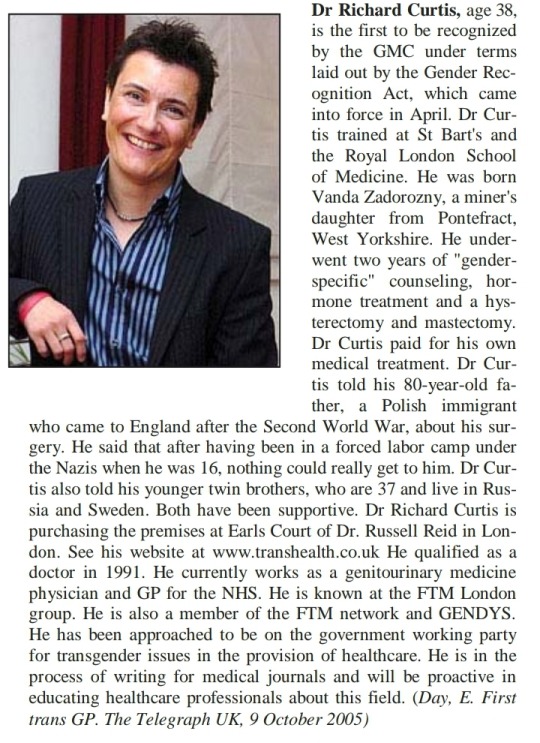Text
A Guide to Our Direct Services
Got a sexuality, gender, sexual health, or relationships question? We got you!
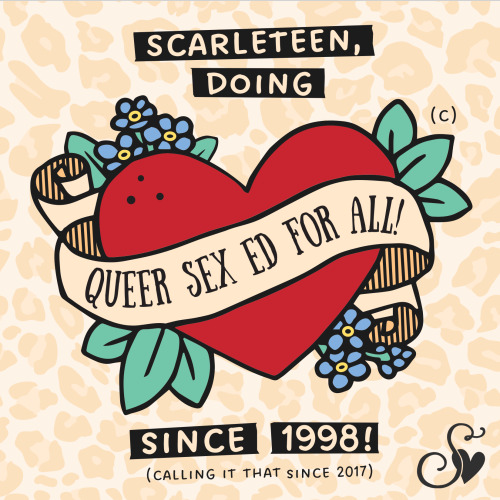
We have four free, direct support services so you can get one-on-one help if you can't find what you need on the website, if you you need or want more information, if you need help understanding something you've read here, or when you want support, help, advice or discussion from our staff, volunteers or peer community.
Our message boards: you'll need to register if you're not already registered for the boards; you can do that here. (We welcome contributions and responses from community members!)
Our SMS (text) service: you can text us at (206) 866-2279. The SMS service is free, but message and data rates apply, just like with any texts you send or receive to or from anyone. Per mobile restrictions, the SMS service is only available for users in the United States.
Our online chat (does not require registration): During chat times or with appointments (see under the cut).
The advice column queue (does not require registration)
(Not sure which you should choose? Find more information under the cut)
Scarleteen is a diverse, inclusive space where we are strongly and actively committed to making and keeping a space that feels as safe as possible for everyone, and which honors the diversity of human sexuality and identity. We welcome users of all gender identities, belief systems, ethnicities, economic classes, relationship constructs, and languages. We ask everyone here to work together to co-create and help nurture such an inclusive space, where often very loaded topics are discussed, by following and respecting the user policies and guidelines.
Which of our services should you choose?
The message boards:
Use for: Almost anything, be it simple questions or in-depth, involved discussions over time. This service is also best for when you want both staff and volunteer engagement AND discussion with peers, or primarily peer-to-peer discussion.
How fast will you be answered? Anywhere from a few minutes to within 24 hours. If you're a brand new user, your posts will not show up immediately on the boards: they go to a moderation queue staff review for a little bit first, so we can better screen for trolls or spammers.
Hablamos español: Tenemos voluntarios disponibles para los usuarios de habla hispana.
The SMS service:
Use for: Help finding content on the site to answer your questions, referrals for in-person local services like sexual or mental healthcare, or a referral to our message boards or live chat when you can't figure out which service is best for you. The SMS service is not intended for answers that can be found in our site content, or can be answered or discussed on the boards or via the live chat service.
How fast will you be answered? Within a few hours to 24 hours.
Hablamos español: Tenemos voluntarios disponibles para los usuarios de habla hispana.
The chat service:
(A real-time popup chat window, staffed and seen only by you and our staff and volunteers. It works like an IM conversation or Facebook chat.)
Use for: Sex, sexuality, sexual health and relationship questions, help, support and referrals. This service does require your immediate and full attention, so if you want to be able to come and go throughout a conversation, especially with lapses of several minutes, hours or days, or want to multitask, the boards or SMS service should be used instead.
Monday: 10 AM - 1PM PST and 1 pm-3 pm PST
Friday: 8:30 - 11:30 AM PST
Saturday: 8 - 10 AM PST
If you want a chat at a time it isn't scheduled, you can always come to the message boards and see if any staff are available and ask. We're currently in the midst of making some changes to our schedule, so the current schedule should be considered temporary. You may also sometimes see the available chat icon -- a red S in a small yellow circle floating over the lower left of every site page -- outside of chat hours if and when staff are available for chat at times other than our set hours, and are welcome to come into chat anytime you see that icon.
The advice columns:
(The index of the advice columns is here, to give you a sense of the kind of engaged, professional and in-depth answers it provides.)
Best for: More involved, complex situations where you want a longer, in-depth answer, but can wait days, weeks or even months for your answer. Questions and situations which are NOT time-sensitive (like pregnancy risks or scares, current health problems, or help you need to find as soon as possible). Questions and answers you are comfortable having published widely for all to see (even though they should not ever contain any identifying information where anyone reading could know it was you asking).
How fast will you be answered? As noted on the input form, most advice questions will never be answered, particularly if we've already written a column that has already answered a question. Otherwise, the wait can be anywhere from a day or two to several months. The advice column is intended for longer, in-depth answers to issues that are not particularly time sensitive or immediate. It is acceptable to leave your question in the queue, but then also bring to another of our direct services for a more immediate and guaranteed answer.
374 notes
·
View notes
Text
this pride, i learnt about the Palestinian trans woman Oscar Al-Halabiye, dancer and resistance fighter against the israeli occupation in Southern Lebanon. she named herself Oscar after Lady Oscar from the "The Rose of Versailles", a Japanese manga series written and illustrated by Riyoko Ikeda.

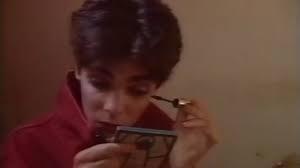
her story is documented in Cinema Fouad(1993). zionists use pink washing to reinforce their genocidal terrorist narrative when queer Palestinians have been fighting against the occupation since the very beginning. you can watch it here with english subtitles. long live the intifada!
47K notes
·
View notes
Text
Rating responses I get to telling someone that I am intersex
(Inspired by this post about polyamory!)
"So you are nonbinary?" - Not really. Not an annoying question on its own but people will run with this misconception unless you correct them 5/10
"Omg.. is that like this super rare medical condition I heard about [describes intersex variation they saw on a medical drama]" - i don't mind this question too much because it's a good segway to talk about intersex rep in media. Loses points because it usually involves me being reminded of Dr. House. 6/10
"I never knew that could happen" good honest response, comes from a place of innocent ignorance. (But also reminds me of systematic intersex erasure) 7/10
"So you're a hermaphrodite?" - yeah I guess. But that's a slur so don't say it. People usually just didn't know. 5/10
"Huh I think that's fascinating" - what am I a colorful slime mold 5/10
"You do you!! Love is love!!!!" - thanks? I'm not really doing anything. Do you understand what that word means? Kinda funny but also exhausting 6/10
"You can do whatever you want with your body just keep kids out of it." - rightwinger transphobia brain slop alert. Also the added irony of saying this to an intersex person 2/10
"So uh.." (lip bite) "what's your downstairs situation" - so the bulge in my pants is actually a big knife. Sometimes chasers can be funny but mostly 4/10
"I thought the correct term was DSD" - reminds me of TERFs, doctor visits, and eugenics 1/10
"I wish I was a intersex. I want to transition to be a hermaphrodite." - AUGGHH.. so much shit wrong with this and I feel obligated to explain and then the person gets defensive and thinks I'm attacking their transness and not the intersexism 1/10
"So that's why you look like that" - yes that is indeed why I look like that 6/10
"I thought that was made up / mythology / only in fantasy" - yeah I'm kind of like a cartoon character so I guess it checks out 6/10
"Oh cool, I've never met someone who was openly intersex :-)" - good response! Good acknowledging of non-open/unknowing intersex people! 10/10
"Holy shit no way me too???" - WOOOO instant new bestie 100/10
"I'm not intersex but I have [condition commonly accepted as intersex] so I relate." - babe. Guess what. 9/10
"Is that a trans thing" - Not really but it is related. I don't mind explaining how we're similar but different. 5/10
"My fursona is intersex :)" - if this is coming from a perisex person, they probably mean their fursona has a penis and a vagina 3/10 - if it's coming from an intersex person 10/10
"Oh.. I'm so sorry.. :(" - for what. It's not a fucking disease 1/10
"Omg so you're like a futa irl that is so hot" - watch less porn -100/10
(Not a comprehensive list!)
(I edited the post to add some I forgot!)
5K notes
·
View notes
Text
Every person need to be taught disability history
Not the “oh Einstein was probably autistic” or the sanitized Helen Keller story. but this history disabled people have made and has been made for us.
Teach them about Carrie Buck, who was sterilized against her will, sued in 1927, and lost because “Three generations of imbeciles [were] enough.”
Teach them about Judith Heumann and her associates, who in 1977, held the longest sit in a government building for the enactment of 504 protection passed three years earlier.
Teach them about all the Baby Does, newborns in 1980s who were born disabled and who doctors left to die without treatment, who’s deaths lead to the passing of The Baby Doe amendment to the child abuse law in 1984.
Teach them about the deaf students at Gallaudet University, a liberal arts school for the deaf, who in 1988, protested the appointment of yet another hearing president and successfully elected I. King Jordan as their first deaf president.
Teach them about Jim Sinclair, who at the 1993 international Autism Conference stood and said “don’t mourn for us. We are alive. We are real. And we’re here waiting for you.”
Teach about the disability activists who laid down in front of buses for accessible transit in 1978, crawled up the steps of congress in 1990 for the ADA, and fight against police brutality, poverty, restricted access to medical care, and abuse today.
Teach about us.
137K notes
·
View notes
Text
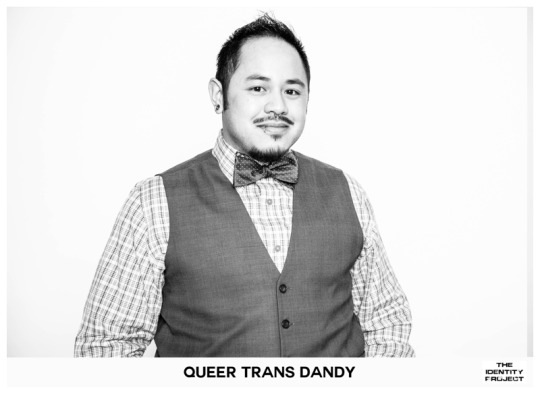
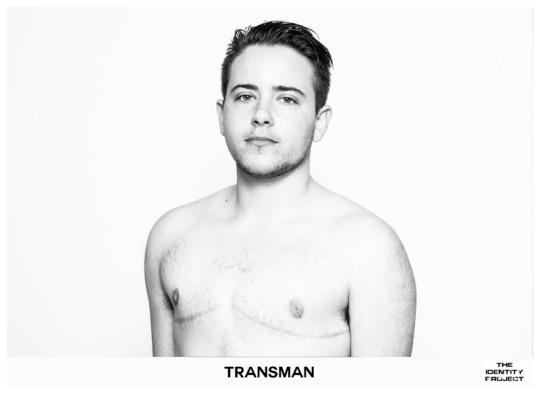
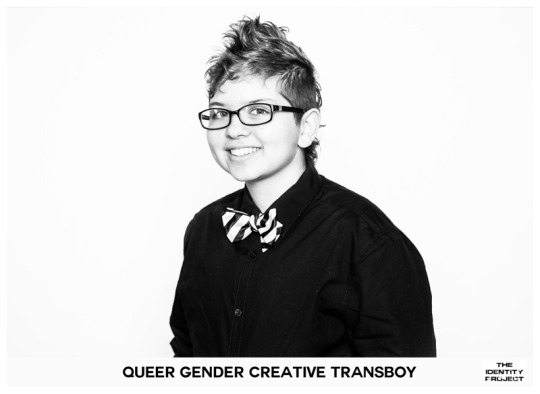
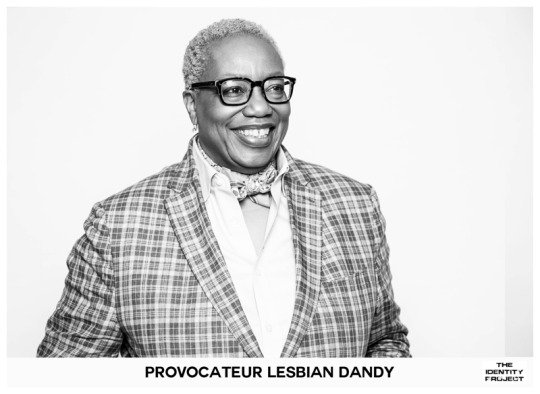
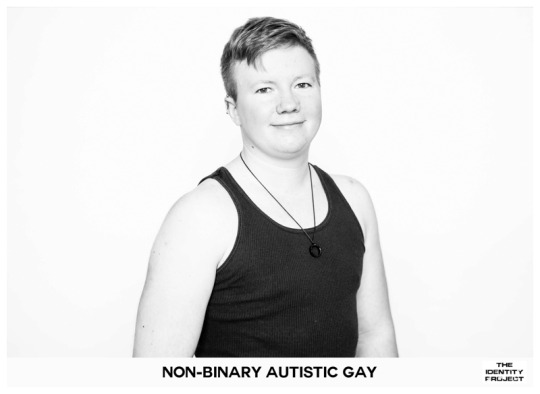
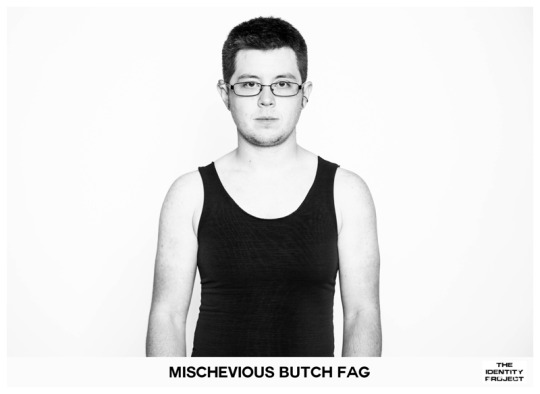
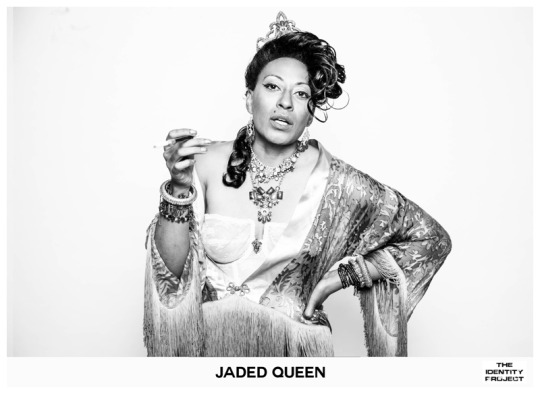
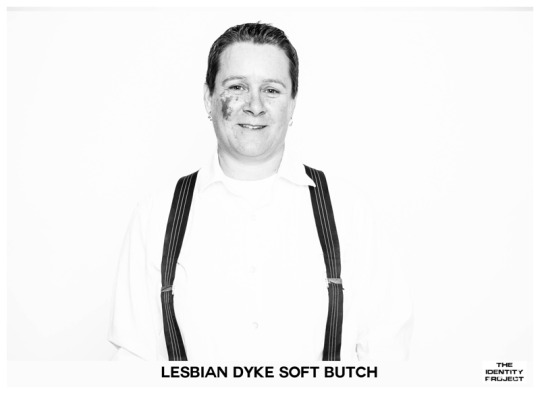
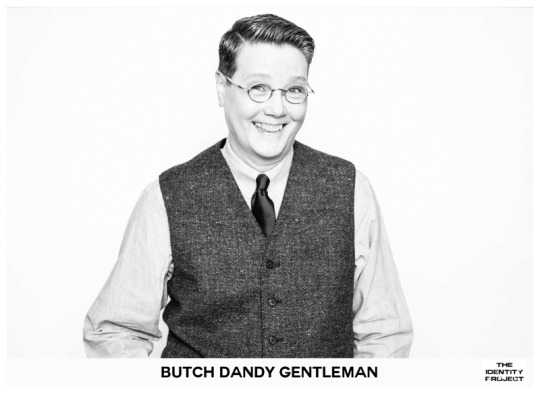
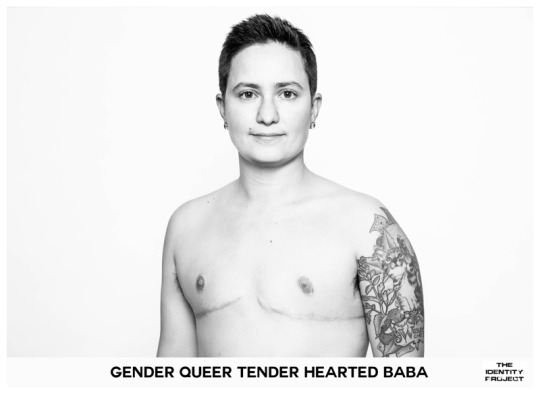
"The Identity Project" San Francisco (2014)
4K notes
·
View notes
Text
something cool about queering your idea of sex is that you can walk out of a heavy make out session feeling like you had the rawest sex of your life. you can be sitting close at a bar kissing them and maybe you’ve found a way to sit so your knee is discreetly between their thighs and feeling the pleasure it gives them and then feeling them give that pleasure to you. you can be looking each other in the eye and you can feel them inside you from that alone. like you want to tear their clothes off and are hungry for the feeling of their skin and their closeness but even just this feels like heaven, feels connected to them in the deep place where pleasure comes from.
12K notes
·
View notes
Text
LESS movies about the lgbtq experience MORE movies about people who just happen to be lgbtq. is it really that hard to understand
99K notes
·
View notes
Text
Trans and intersex people in the UK need you to be loud and angry about the new "deception as to sex" guidance released which makes trans and intersex people legally guilty of rape if we don't disclose our gender identity and/or the sex we were assigned at birth to sexual partners.
This is particularly going to harm trans and intersex sex workers, who often have a higher number of sexual partners who we might keep our trans or intersex identity from for our safety.
"To summarize this guidance in the simplest terms, it treats a trans or intersex person not disclosing their gender identity and/or the sex they were assigned at birth as a form of deception which negates consent."
"This interpretation of part of the existing Sexual Offences Act (2003) places an unreasonable burden on trans and intersex people to inform our sexual partners of our medical history, while no such burden is placed on cis perisex people who are allowed to rely on assumption."
17K notes
·
View notes
Text
I'm reading Whipping Girl and I'm really fond of the word "cissexism" the way Julia Serano uses it, defined by her as:
"The belief that transsexuals' identified genders are inferior to, or less authentic than, those of cissexuals"
She defines cissexism as a separate (but related) phenomenon to regular transphobia, and I've found it an extremely useful distinction to be able to make. This word needs to make a comeback tbh
3K notes
·
View notes
Text
Check out Advocates for Trans Equality’s Trans Survival Guide: https://transequality.org/news/introducing-trans-survival-guide
79 notes
·
View notes
Text
As a queer person online who is not from the dominant cultural powerhouse in the world, the most common phrase I see is "know your queer history". I was always annoyed by this mantra not because I didn't want to take the time to understand the evolution of queerness through time but because that statement was always silently referring to North American queer history.
Australians. We now have an incredible new LGBTIQA+ documentary about queerness in Australia's colonial and Aboriginal history and it's written by gay comedians. Wins all around. If you want to learn about YOUR queer history, the three part documentary Queerstralia is now showing on ABC iView. Go go go!
9K notes
·
View notes
Note
In a weird way, it feels like this is the only blog I can ask this and know that I'll get a 100% honest answer to my question, without having to worry about reading subtext. (Thank you for that) you've mentioned you don't want man hating lesbians here (valid) and if that applies here I'll back off 100% but like.
What if I specifically hate Cishet men. What if I don't take issue with queer men at all, just the cishets? Geunine question, just in case, because I know this could read as like trolling or something, and I do understand that basic language dictates yes it'd apply but I'm stupid & not sure, and I know that even if it's a harsh or brutal reply, you'll still give it to me straight. (Thank you for that too, my autistic ass struggles with subtext a lot.)
While I have reasons for feeling the way I do, I'm not sure they matter in this context. And that's okay.
i'm glad that you want to have a genuine conversation about it, i really appreciate that! the only way to learn and figure things out is to ask questions
at the end of the day, this behavior still affects queer men. cishet men can be queer- they can be intersex, aromantic, asexual, genderqueer, gender non conforming, drag artists... "cishet man" does not inherently mean someone who is not queer. there are many ways to be queer outside of being gay, bisexual, and/or trans. and even then, this behavior gets dangerous fast because strangers you perceive to be cishet men very well can be anything but that. someone you clock to be a cishet man may be a closeted trans girl, a trans man, a non binary person, a butch lesbian, and so on. you treating that person like they're an inherent danger causes a whole host of issues
this attitude is also why trans men, trans women, and non binary people are being forcefully removed from queer communities. if a queer person reads or passes as a "cishet man," they are treated with hostility and asked to leave in a lot of cases. we cannot allow the concept of manhood and perceived manhood to be viewed as something to be avoided and cast out, because it affects so much more than just cishet men. this attitude affects a LOT of closeted and non-passing trans women. honestly, that's who this hurts the most. it hurts trans men and enbies, but it really hurts trans women. it creates a standard where they have to overperform femininity and womanhood in order to be seen as "safe", and it's not okay.
projecting your issues with a small handful of people on to an entire group does not help. you have not been harmed by the concept of cishet men- you have been harmed by specific cishet men. in permanently labeling cishet men as bad people, this creates an ultimatum where they can never improve. hating them by virtue of them being cishet men creates a standard that cishet men will ALWAYS be terrible, and that they can't improve or learn. this creates an environment where no one challenges these behaviors and it makes the cycle even more toxic and abusive
it's okay to not want to spend time with cishet men, but saying that you hate all cishet men really isn't a good look. it's not the way to go about living a happy life. assuming that every single cishet man on this planet will hurt you or be a bad person strictly by virtue of being a cishet man is exactly what cishets do to us. this is how queerphobic cishet people look at trans women. there's no reason to do it back. we have to learn not to stereotype entire groups of people, no matter who they are
the concept of cishet men has never hurt you, and it never will. cishet men are not your enemy- patriarchy is. not every single cishet man benefits from patriarchy, either. intersex men, men of color, gender non conforming men, ace men and aro men are treated like absolute shit for not conforming to the toxic masculinity that patriarchy pushes. patriarchy also harms men- we must stand alongside men who are being chewed up and spat out by this machine. cishet men are not inherently bad people- we are grooming boys and men to be hostile, emotionally closed off, and violent. this is not an inherent trait of cishet men, but rather a societal issue
i hope that makes sense! in general it just really sucks to stereotype an entire group of people. it doesn't help anyone. the concept of cishet manhood hasn't hurt you and it never will. cishet men can still be allies. i've had lots of cishet male friends who weren't transphobic or even homophobic. the first person in my irl life to switch to using my proper pronouns at the time was a cishet man. he never screwed up my pronouns once, he never questioned my gender identity. cishet man does not mean inherently violent, dangerous, and evil. the more we teach men that they don't have to be this way, the more they will follow.
hope that helps! take care!
576 notes
·
View notes
Text
On World AIDS Day, I want to remember those not on the quilt, those forgotten.
I remember the street kids who purposely overdosed instead dying of AIDS. I remember the sex workers living and dying in dignity. I remember the homeless people who died unnoticed and untreated. I remember those who died deep in addiction.
I remember you. I remember you. I remember you. You mattered. You still matter. I love you.
7K notes
·
View notes






